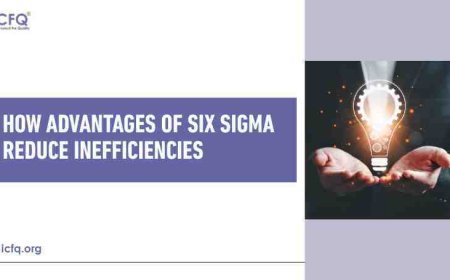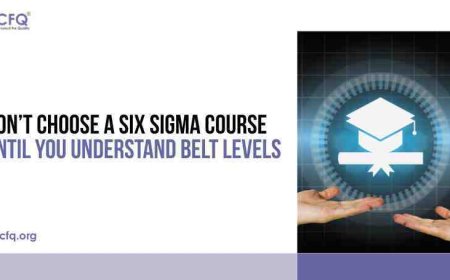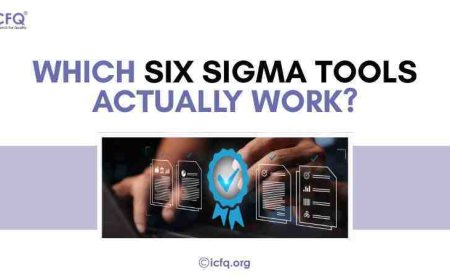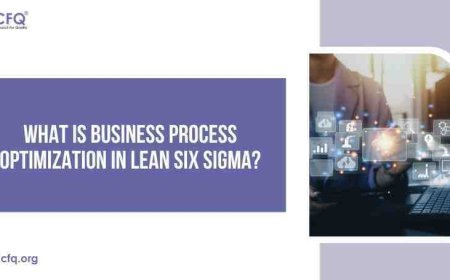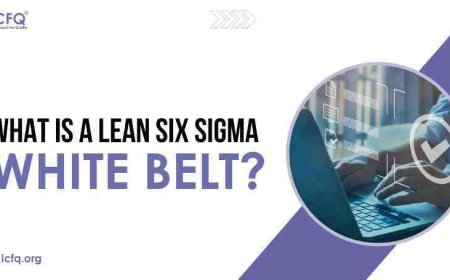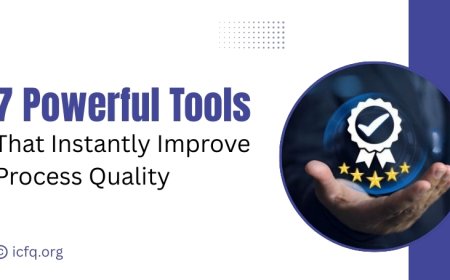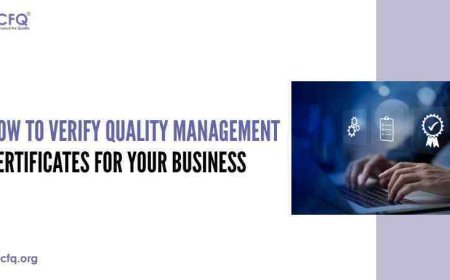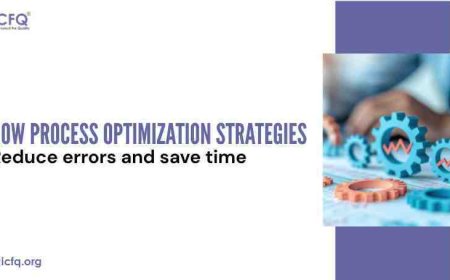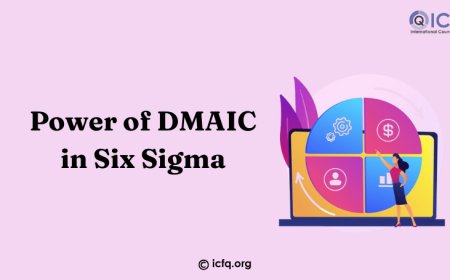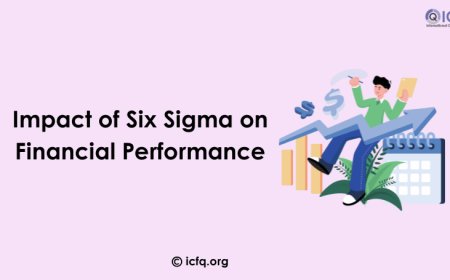Who Certifies Six Sigma Certification?
Learn who certifies Six Sigma certification, the key organizations involved, and how professionals earn recognized credentials for career growth.
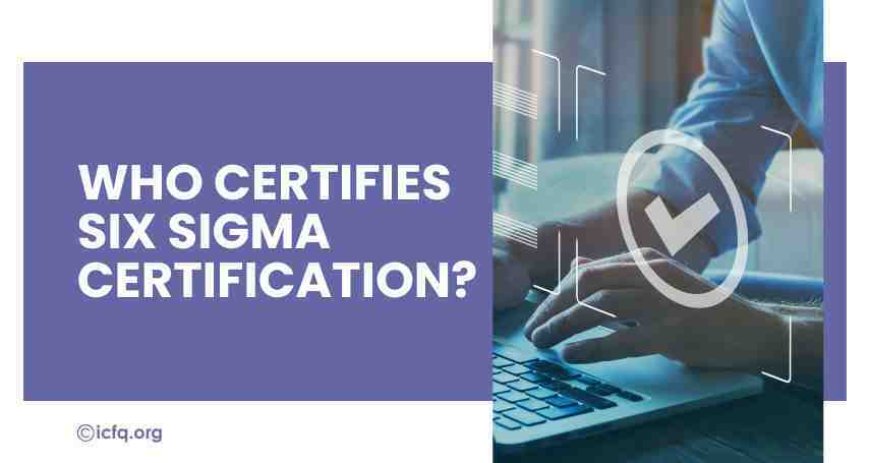
Every day, professionals around the world look for ways to grow their careers and stand out in a competitive job market. Among the many career-boosting qualifications, Six Sigma certification has become one of the most valued credentials in business and process improvement.
But here’s the interesting part , there isn’t just one single body that certifies Six Sigma. Instead, several trusted organizations across the globe issue these certifications, each with its own methods, exams, and credibility.
Choosing the right certifying body can make a big difference in your career. The certification you hold reflects your skill level, your understanding of process improvement, and your ability to lead change in an organization.
Understanding Six Sigma
Six Sigma is a business improvement method that helps companies reduce mistakes and improve quality. It is used in all industries, from manufacturing and healthcare to IT and finance.
The certification is divided into levels, known as belts, similar to martial arts:
-
White Belt: Basic knowledge of Six Sigma.
-
Yellow Belt: Assists project leaders and understands key tools.
-
Green Belt: Leads smaller improvement projects.
-
Black Belt: Manages complex projects and mentors others.
-
Master Black Belt: Focuses on strategy, training, and guidance.
Each level represents your experience and ability to make business processes better and faster.
Who Certifies Six Sigma Certification?
There isn’t one single global body that controls Six Sigma certification. Instead, many respected organizations offer their own versions, all based on the same core principles of process improvement and quality control.
1. ICFQ (International Certification for Quality)
The International Certification for Quality (ICFQ) is a global body that provides professional certifications in Six Sigma and quality management. It follows international standards and offers training programs designed for both individuals and organizations.
Why it’s recognized:
-
Globally accepted by employers across industries.
-
Offers certifications from Yellow Belt to Master Black Belt.
-
Focuses on the practical implementation of Lean and Six Sigma principles.
-
Designed to match real business needs and modern workplace challenges.
Best for: Professionals who want an internationally recognized certification that combines theory, project work, and global standards.
2. IASSC (International Association for Six Sigma Certification)
IASSC is an independent organization that provides Lean Six Sigma certifications globally. It does not offer training directly but partners with approved providers.
Key features:
-
Offers exams for Yellow, Green, and Black Belts.
-
Ensures consistent exam standards worldwide.
-
Recognized by companies looking for independent, unbiased certification.
Best for: Professionals who already have Six Sigma training and want a credible third-party certificate.
3. CSSC (Council for Six Sigma Certification)
The Council for Six Sigma Certification (CSSC) is another popular certifying body that provides free and paid options for different Six Sigma levels.
Why it’s popular:
-
Affordable and flexible learning formats.
-
Endorsed by both universities and businesses.
-
Focuses on making Six Sigma accessible to everyone.
Best for: Students or professionals looking for a cost-effective yet credible certification path.
4. Universities and Accredited Institutes
Many leading universities like Purdue University, Villanova University, and Arizona State University also provide Six Sigma certification programs.
Why it’s valuable:
-
Combines theory with real-world business projects.
-
Includes guidance from industry professionals.
-
Often linked with recognized global certifying bodies.
Best for: Professionals who want both academic credibility and practical knowledge.
How to Choose the Right Certification Body
Choosing the right Six Sigma certification depends on your experience, goals, and learning style. Here’s a simple guide:
|
Factor |
What to Check |
Why It Matters |
|
Recognition |
Is the certificate accepted by top companies? |
Increases your career opportunities. |
|
Training Quality |
Does it include real project work? |
Helps you apply Six Sigma in real life. |
|
Exam Standards |
Is the exam fair and structured? |
Ensures true skill validation. |
|
Cost & Time |
Does it fit your budget and schedule? |
Saves money and time. |
|
Career Level |
Are you new or experienced? |
Helps choose the right belt. |
Take time to compare before enrolling - it ensures your investment gives long-term value.
The Demand for Certified Professionals
Today, almost every industry values Six Sigma-certified professionals. Whether you’re in production, banking, or IT, companies prefer people who can solve problems, reduce errors, and improve productivity.
Small and mid-sized businesses are also adopting Six Sigma methods to cut waste and boost performance. Having a recognized certification not only boosts your career but also gives you practical tools to lead improvement projects effectively.
The Future of Six Sigma Certification and Career Growth
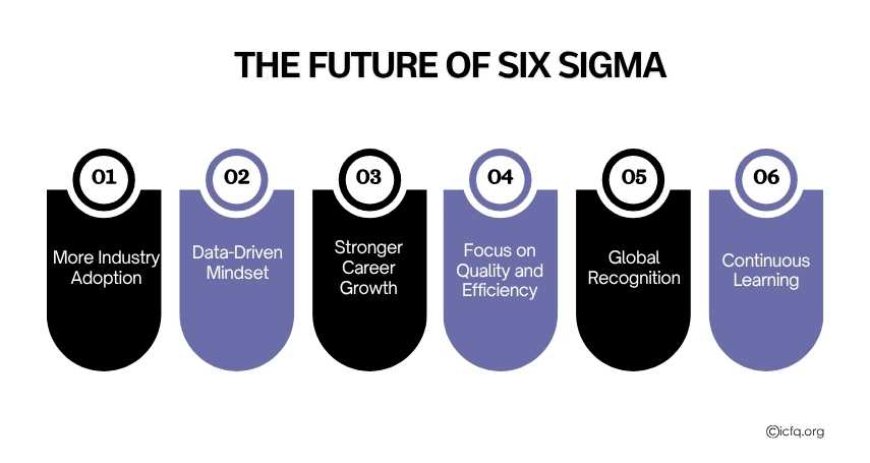
The future of Six Sigma certification looks strong as more companies focus on efficiency, cost reduction, and customer satisfaction. Businesses are now applying Six Sigma beyond manufacturing , in areas like IT, healthcare, finance, and education, to improve daily operations and service quality.
With growing competition and tighter budgets, organizations are looking for professionals who can solve problems, reduce waste, and improve processes in a structured way. This is where Six Sigma experts play a key role.
The Future of Six Sigma
-
More Industry Adoption: Six Sigma is expanding across multiple fields, not just manufacturing.
-
Data-Driven Mindset: Companies depend on metrics and structured methods for improvement.
-
Stronger Career Growth: Certified individuals often move into management and leadership roles.
-
Focus on Quality and Efficiency: Organizations value professionals who can deliver measurable results.
-
Global Recognition: Six Sigma certifications are accepted worldwide, opening international job paths.
-
Continuous Learning: Professionals are expected to keep updating their skills through real-world experience.
There is no single authority that certifies Six Sigma worldwide.
Before choosing, check how the program fits your career goals, cost, and learning needs. The right certification will help you gain confidence, lead better projects, and make a positive difference in your organization.
Six Sigma certification is more than just a title, it’s proof that you know how to bring real, measurable improvement to any workplace.
